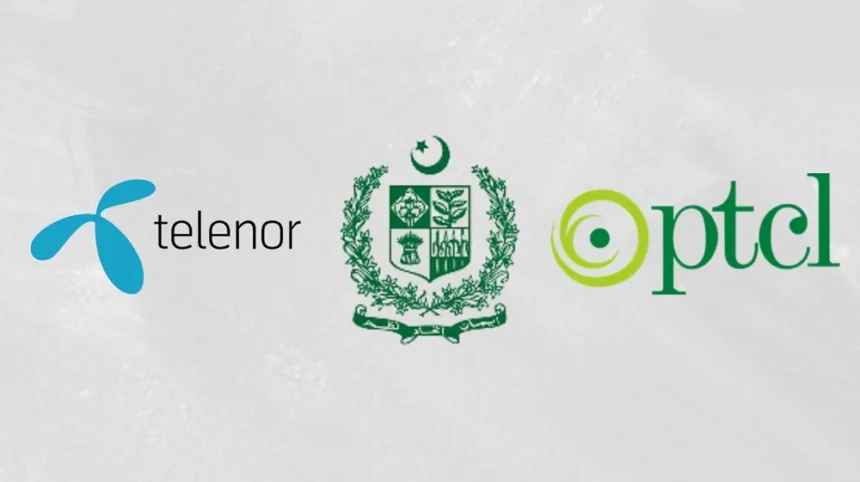The high-stakes acquisition of Telenor Pakistan by Pakistan Telecommunication Company Ltd (PTCL) has entered a decisive phase as PTCL submitted a detailed business plan to the Competition Commission of Pakistan (CCP) this week. This development comes after the CCP conditionally approved the merger, subject to PTCL addressing regulatory concerns, financial risks, and market competition issues.
Presented during a hearing chaired by CCP Chairman Dr. Kabir Ahmed Sidhu, PTCL’s plan aims to convince regulators that the merger will result in operational efficiencies, stronger market positioning, and infrastructure consolidation. However, key questions remain—particularly around PTCL’s financial sustainability, its classification as a significant market player by the PTA, and the source of capital for this strategic move.
The CCP has asked for more clarity on how the merger will impact consumers and the competitive landscape, especially considering PTCL’s continued losses and the poor performance of its cellular arm, Ufone. Despite PTCL’s assurances that the deal would eliminate redundancies and improve service delivery, concerns around integration challenges, workforce alignment, and customer churn persist.
The Finance Ministry has also flagged major risks, including PTCL’s pension liabilities and its position as one of the country’s top loss-making SOEs. With Etisalat still holding management control of PTCL and the government maintaining a 62% stake, the merger’s success hinges on navigating both bureaucratic and market pressures.
Originally announced in December 2023, the Telenor acquisition is still awaiting final approval. If cleared, the combined PTCL–Ufone–Telenor entity could reshape Pakistan’s telecom sector—but only if it can overcome its regulatory and operational challenges.







